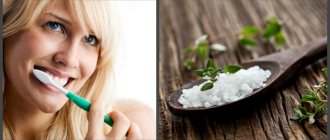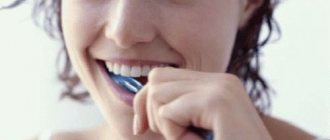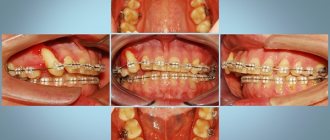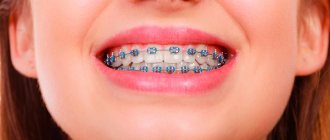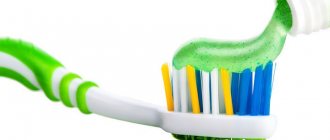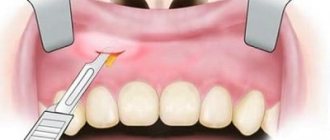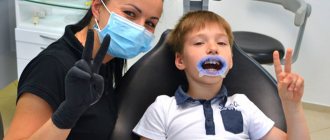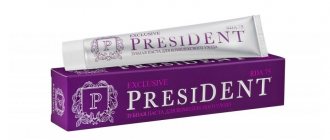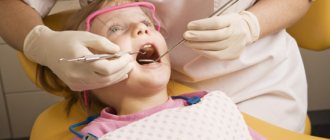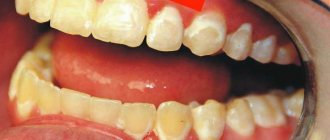Donating blood for analysis is a common procedure , even in some ways natural.
Whatever doctor we visit, be it a simple physical examination or a specific examination for any disease, a blood test is necessary.
But few people think that before collecting material they need to adhere to certain rules of “behavior”.
And in addition to restrictions on foods and drinks, when submitting the study material, in some cases it is not even recommended to brush your teeth .
What is the connection between such an “innocent” hygienic procedure and the reliability of the results of a blood test, and whether it is possible to brush your teeth before donating blood should be understood.
Cleansing the lungs with medications
If you are a follower of traditional medicine, then the list below will be of interest to you. Here are the medications recommended for cleansing the lungs. These are drugs with a mucolytic, expectorant effect that help liquefy bronchial secretions and facilitate their evacuation from the lungs.
Ascoril
A medicine produced in the form of syrup and lozenges that facilitates the removal of sputum, dilates the bronchi and relieves bronchospasm thanks to the salbutamol contained in the drug. Taken in accordance with the instructions for use.
Mukaltin
A mucolytic that is popular due to its affordability and therapeutic effectiveness. It is used for bronchitis and other pulmonary diseases, quickly clears the bronchi of mucus, removes phlegm, and makes breathing easier.
Gedelix
One of the best phytotherapeutic agents, characterized by good tolerance, high efficiency and, as a rule, the absence of side effects. Promotes liquefaction of sputum and its rapid evacuation from the bronchi of smokers.
Ambroxol
A highly effective expectorant characterized by a rapid and stable cleansing effect. It is able to cleanse the lungs even of long-term smokers and quickly makes breathing easier.
In conclusion, we can summarize - cleaning the lungs of smokers is necessary to prevent pulmonary diseases and damage to other organs and systems. Today, there are many known ways to cleanse the lungs - from medications to folk remedies, proven by many years of experience. Be healthy!
Iron, determine which method is suitable for your technique. Ceramic or Teflon soles, for example, should not be rubbed with abrasives. Use the more gentle methods listed below.
Method 1. Salt
Sprinkle salt onto a sheet of paper in an even layer and move a hot iron over it until the blackness disappears.
Method 2. Paraffin candle
Wrap the candle in a cotton cloth and rub the hot sole of the iron in a circular motion. Hold the device over a tray or a layer of newspapers: during the process, the candle will melt and the paraffin will flow down.
Be careful if the working surface of your iron is textured or has steam holes. Paraffin can get into the grooves and stain your items during subsequent ironing.
After defeating the burn, carefully remove any remaining dirt and melted candle.
Method 3. Hydrogen peroxide
Soak a cotton swab or piece of cloth in 3 percent hydrogen peroxide. Carefully and forcefully scrub dark stains from the surface of the cold iron. Peroxide will help dissolve plaque and make it easier to remove.
Method 4. Table vinegar
Soak a cotton swab in vinegar and wipe the soleplate of the cold iron. If the burn is strong, add ammonia to the vinegar in a 1:1 ratio.
If this does not help, soak a cloth in vinegar and cover the working surface of the device with it for several hours. During this time, the plaque will soften. Remove it with a sponge or soft brush.
Method 5: Baking soda
Dissolve a few tablespoons of soda in a glass of water, soak a piece of cloth in this solution and wipe the cold surface of the iron with it. When finished, clean the iron from streaks with a damp sponge.
If a piece of polyethylene is stuck to the sole of the iron, it can be removed using nail polish remover. When cleaning, try not to touch the plastic parts of the iron: substances in the liquid can damage them.
Types of research
There are many specific types of blood tests, differing both in subject and method of examination.
Blood contains a large number of elements, the combination of which can indicate the presence of a problem and shed light on processes occurring in the body that go beyond normal limits.
Most pathologies in one way or another affect the composition of microelements in the blood, which is why it is possible, using tests, to determine possible problems, the degree of development of pathological processes and even their localization.
Among the large number of possible research in medicine, the most popular will be:
- a general clinical blood test, which can be taken either from a finger or from a vein;
- blood test for biochemistry;
- sugar test;
- hormone analysis;
- analysis for the presence of specific antibodies that arise to certain types of infection.
In addition to those listed, there are other types of possible studies.
They will differ in the subject of study - whether it will be an analysis of the properties of blood, a study of the percentage of its particles, or the identification of specific substances - it will be difficult to list them all.
Video:
In addition, even the above research methods (for example, a blood sugar test) can be carried out in different ways in order to obtain the most accurate and necessary data for a particular case.
There are several types of blood sugar tests, and each requires a special approach.
The specifics of preparing for testing will differ primarily from the purpose of the study.
Before carrying out the analysis, it is necessary to create conditions that will help obtain the most “pure” results, unaltered by any (even minimal) external influence.
Before gastroscopy
First of all, you should understand what gastroscopy is and for what purpose this examination is prescribed.
Need to know! Gastroscopy is an examination of the stomach with a special flexible probe (gastroscope).
A special light bulb is attached to one side of such a device, and a camera is attached to the other, with the help of which the state of the stomach is recorded on the screen.
for fibrous formations, ulcers and polyps.
Gastroscopy also allows you to take a sample of stomach tissue for a biopsy.
How to properly prepare for such an examination?
First of all, the stomach must be empty, and the patient must not eat anything (6-8 hours) or drink anything (2 hours) before the procedure.
Remember! Blood must first be donated to identify various side diseases, as well as to prevent unwanted complications:
- a general (clinical) analysis is prescribed to identify pathologies and inflammatory processes in the body;
- determination of blood type and Rh factor is necessary to prevent unwanted reactions and complications;
- a coagulation test is prescribed to identify various disorders in the hemostatic system, since minor bleeding is possible when a gastroscope is inserted;
- the presence of hepatitis B and C antibodies, HIV infection is a risk area for infection of the doctor and staff.
These tests have nothing to do with brushing your teeth, and the use of toothpaste will not in any way affect the reliability of the results (the number of white blood cells, hemoglobin and platelets, red blood cell speed, etc.).
Keep in mind! If the patient is prescribed a biochemical blood test, then you should refrain from brushing your teeth using toothpaste immediately before taking the test (see biochemical blood test).
For sugar
It is worth noting! In this case, along with serious restrictions on food and drinks (you can’t even drink sweet tea or water 8 hours before taking the material), there is also a ban on toothpaste.
What is the reason for this limitation?
The fact is that any, even the most natural toothpaste contains sugar .
It is absorbed through the mucous membrane into the blood and naturally affects sugar levels in the circulatory system.
To avoid distortions in the results of a blood sugar test, and therefore not to donate the material again, you should avoid brushing your teeth using toothpaste immediately before the procedure.
How to prevent scale formation
To avoid having to remove scale in the future, control the quality of what you pour into the iron. The best way to do this is:
- Distilled water: available at any gas station.
- Bottled water from the nearest supermarket.
- Water purified using a home filter.
- Settled tap water: within a few hours, salts will precipitate.
Cleansing the body is a must for good health and strong immunity.
. But to achieve visible results, this process should be approached comprehensively and responsibly. Otherwise, with your good intentions, you can only cause harm by provoking an exacerbation of existing chronic diseases and getting a couple of new ailments. So, if you decide to do cleansing, you need to do it according to all the rules. And today we will talk about how to cleanse the entire body step by step.
Child's food intake
All chemical compounds that penetrate the intestines along with food are absorbed into the blood. Their presence in human fluid in one quantity or another affects the indicators.
Doctors recommend not eating for several hours before taking the test so that the data is not distorted, which leads to an incorrect diagnosis and the need for a repeat test.
If you do not follow all the nutritional rules when taking a general or biochemical analysis, you can expect the following results:
- When decoding, false interpretation of the results is possible.
- Making an incorrect diagnosis.
When consuming fatty foods, blood viscosity appears and the leukocyte formula changes, which erroneously indicates the presence of an inflammatory process. And this entails unnecessary treatment, taking medications that undermine the condition of the body. Drinking alcohol the day before or eating foods containing dyes may erroneously indicate liver pathologies.
For information! Children over 1 year of age must adhere to the time interval between the last meal and blood testing. The duration of abstinence from food should not be less than 7 hours.
On the eve of the laboratory visit, parents should adjust the child’s nutrition. It is necessary to exclude fatty and fried foods, sweets and sugary drinks. The emphasis should be on cereals, vegetables, low-fat dairy products, fruits and berries. During the night and in the morning before visiting the laboratory, you can give your child plain water. Tea, juices and soda are strictly prohibited.
Is it possible to brush your teeth the day before the procedure?
Speaking specifically about brushing teeth, we mean changes in the results of blood tests that can occur when elements of the paste are absorbed into the blood.
Toothpaste often contains various sweeteners, which makes its taste more pleasant for comfortable daily hygiene procedures.
It is these sweeteners that can change blood chemistry.
When asking questions about whether it is possible to brush your teeth the day before the procedure and why normal hygiene procedures can be performed in one type of study, but not in another, it is worth considering the purpose of a particular analysis: will possible changes caused by brushing be critical to the results of the study?
For example, the likelihood that the components of the paste will significantly affect hormone levels is quite low so that this procedure can be categorically prohibited before an analysis, the purpose of which is to study the hormonal composition.
At the same time, it is strictly forbidden to use the paste before sugar tests. You should refrain from brushing your teeth before donating blood for biochemistry.
A general clinical analysis, as a rule, does not require compliance with strict conditions, including the possibility of carrying out the necessary morning procedures before the study.
The main requirement is to maintain a “clean” blood balance immediately before donating.
To do this, you should not eat or drink, smoke, chew gum, or brush your teeth for an hour before the procedure.
You should not subject the body to physical or mental stress, as this will also affect the composition of the blood.
Thus, you can independently understand whether in a particular case you need to brush your teeth or not and why.
Daily oral hygiene is a standard procedure that makes a person feel more comfortable and protects the mouth from the growth of harmful bacteria.
It is normal to brush your teeth once or twice a day. As a rule, people brush their teeth only at night or both in the morning and in the evening.
At the same time, some experts believe that evening procedures will be more beneficial for the body.
In the morning, teeth are brushed rather for the feeling of personal comfort and for social acceptability (to eliminate possible bad breath and make the appearance more neat and well-groomed).
In addition to brushing your teeth, you can carry out other hygiene procedures every day - rinsing, using dental floss and cleaning the surface of your tongue from plaque.
Together they contribute to the fact that the risk of oral pathologies becomes minimal.
Directly on the day when you need to take blood tests, you can carry out hygiene procedures without using paste.
In this case, the surface of the teeth will also be cleaned with a brush, and to consolidate the effect, the mouth can be rinsed with boiled water and the plaque that has formed overnight can be removed from the tongue (using the same brush or the back of a spoon).
This will not have any negative effect on the teeth and at the same time will help to somewhat eliminate possible bad breath and prevent the development of microbes or the formation of morning plaque on the teeth.
Under no circumstances should you replace the toothpaste with other cleaning agents (for example, soda), and you should not use saline or other solutions when rinsing your mouth.
The point of not using the paste is to not affect the composition of the blood in any way before taking tests.
Accordingly, other substances can also be absorbed through the mucous membrane or accidentally swallowed and cause distortions in the data obtained after a blood test, which will interfere with high-quality diagnosis.
Because of this, you should stop using chewing gum before undergoing procedures.
Using the above methods, you can effectively clean the oral cavity and not affect diagnostic data, which is sometimes critical for assessing the patient’s health status or prescribing effective treatment.
Oral hygiene rules without using toothpaste
People are accustomed to brushing their teeth from an early age, and recently both advertising and newfangled medical TV shows, forums and blogs have been aimed at improving this process.
New electric multifunctional brushes for children and adults are being invented, toothpastes with incredible composition and effect are being advertised.
But one point is missed here - brushing your teeth at night is important.
It is the “overnight” leftover food that harms dental health; the morning procedure is more likely to eliminate psychological discomfort (odor, plaque, etc.).
Therefore, by brushing your teeth thoroughly before going to bed, in the morning (if required by the doctor before donating blood), you can do without toothpaste.
You should know! What can replace morning brushing of teeth:
- In the evening, on the eve of the morning blood test, you should thoroughly brush not only your teeth, but also your tongue, gums and the inside of your cheeks. It is in these places that a huge number of microbes accumulate.
- In the morning , you need to brush your teeth and tongue without toothpaste to remove plaque and freshen your mouth.
- Be sure to rinse your mouth with water or a special solution (10 - 12 drops of hydrogen peroxide per 250 grams of warm water). Rinsing will remove bad breath and neutralize bacteria that appeared at night.
It is prohibited before taking blood tests .
This is explained by the fact that, in addition to sugar, they contain many harmful synthetic compounds, dyes and flavors that can affect the results of the analysis.
Taking biochemistry
Biochemical analysis is a kind of “mirror” of the body. The slightest changes in his condition are reflected in the biochemical analysis.
Keep in mind! You should prepare for such an analysis by eliminating all possible causes of false indicators.
In addition to the ban on coffee, sugary drinks, smoking and alcohol, experts recommend not brushing your teeth using toothpaste before the test.
Especially when it comes to the study of glucose, urea and sugar.
It is necessary to take into account the quality of reagents that react to any external factors:
- toothpaste contains triclosan and other synthetic substances that have antibacterial properties, which, in turn, can affect the accuracy of the readings;
- saccharin contained in toothpaste directly affects blood glucose levels;
- foaming pastes with the addition of sodium lauryl sulfate affect changes in the protein composition of cells (nitrate compounds can accumulate in the circulatory system).
When prescribing a referral for this test, the doctor does not recommend morning brushing of teeth using toothpaste.
Testing for hormones
You should know! A comprehensive examination of hormones (reproductive, thyroid and pituitary gland) is prescribed to identify serious changes in the body.
Blood material is examined venously, taken on an empty stomach only in the morning (from 8 to 11 am).
It is prohibited to take medications that can change hormonal levels, as well as alcohol, visiting a sauna, any stress (including physical), as well as emotional outbursts.
Peace, rest and a positive attitude are recommended.
The determining factors for the accuracy of the results are time, gender and age of the patient.
This is in no way related to brushing your teeth; in this case, there are no restrictions on the use of toothpaste.
Briefly about the procedure
It is very important that during the research process the results are not distorted. The procedure can be carried out in 2 ways:
The procedure can be carried out in 2 ways:
- A general blood test is carried out by taking biological material from a finger. It shows the exact level of hemoglobin, red blood cells and sugar levels.
- Collection from a vein - a more in-depth study. With its help you can find out: coagulability, Rh factor, blood group, determine hormonal levels, the presence of antibodies, biochemistry.
When collecting, there are certain rules that are not recommended to be violated. Otherwise, the results may be distorted, leading to ineffective treatment. Therefore, the donation of biological material must be approached with all responsibility.
source
The procedure for donating blood for analysis
Note! Not a single examination, surgery, x-ray, appointment or even physical procedure is complete without a blood test.
This simple procedure allows a specialist to quickly assess the patient’s condition and identify possible deviations, even without general clinical signs of the disease.
Analysis of the material
can be venous or capillary , depending on the purpose of the study (sugar content, the amount of certain hormones, the presence of infections, pathologies and inflammatory processes, etc.).
What can you eat before donating blood?
The list of general recommendations from doctors on foods and dishes that it is advisable to consume before the donation procedure.
List of permitted products:
- Low-fat cottage cheese;
- Low-fat varieties of meat (preferably white poultry), in limited quantities - beef;
- Vegetables, including potatoes, beets and other healthy root vegetables;
- Light porridges cooked in water;
- Domestic types of fruits are moderately acidic and sweet;
- Pasta products made exclusively from durum wheat;
- Mineral water, fresh vegetable and fruit juices without added sugar, compotes;
- It is allowed to use greens, except garlic, onions and radishes;
- Eggs – you can eat only whites, no more than 1 egg per day;
- Some sweets - in particular honey, a little marmalade and marshmallows;
- Bread and products based on it. It is advisable to choose stale product options without yeast;
- Fish. Only lean ones, such as pike perch, herring, cod or sea bass;
- Spices. Only dill and bay leaf;
- The soup is simple, not rich, cooked in a light vegetable broth;
- Other products that do not burden the stomach and are recommended by nutritionists in this situation.
Among the additional features, one can note the need to prepare dishes from the above-mentioned products only by steaming or by boiling - baking, raw food, and especially frying are not suitable for these purposes.
The nutrition plan itself is fractional, in small portions, but 5-7 times a day.
Nutritionists do not give an exact period during which it is necessary to adhere to the mini-diet described above. Only the limiting lower line has been set at 1 day. As practice shows, in order to get good tests and successfully donate blood, you need to adhere to the designated diet plan for at least 3-4 days preceding the donation procedure.
Blood test for donation
Stay up to date! In any donor center, after registration, a step-by-step examination of the blood of a potential donor is carried out:
- in the laboratory, material is taken from a finger to determine the blood type, Rh factor and the amount of hemoglobin;
- a transfusiologist, as a result of an examination, based on capillary examination, gives permission for donation;
- All donated blood is examined for the presence of HIV infection, and is also tested for all types of hepatitis and syphilis.
Before the donation , it is mandatory to drink sweet tea with cookies or other baked goods to ensure the donor’s normal well-being.
Therefore, the issue of prohibiting brushing teeth is not discussed; the hygiene procedure is not an obstacle to this manipulation.
How to prepare for cleaning?
The process of cleansing the lungs cannot be carried out spontaneously, without first preparing the respiratory system and the entire body for radical changes.
- First, you need to give up the most harmful habit for your lungs - smoking. Think for yourself, is it possible to cleanse your lungs if they become clogged again every day?
- If you have been smoking for a long period, then not only your respiratory system, but also your digestive organs, in particular your intestines, have probably suffered. Inhaled tobacco smoke and the tars and other toxins it contains contribute to the formation of mucus and even stones on the intestinal walls. Before you cleanse your lungs, be sure to cleanse your intestines.
- If it is possible to change your place of residence or work to less harmful living and working conditions, do so. Then your lungs will become truly easy to breathe.
- Be sure to consult with your doctor, find out if you have any contraindications for such a process as cleansing the lungs with folk remedies and other procedures.
Only after you are confident in the safety of cleansing techniques in your individual case can you begin the step-by-step process of healing your lungs.
I brush my teeth with this brush
A good toothbrush plays a key role in maintaining oral hygiene. So you need to choose it carefully. The first thing you should focus on is the degree of rigidity. Those who are confident in the strength of their gums can use. Their rigidity provides the most powerful cleansing of plaque. But it should be preferred if you are predisposed to bleeding gums, so as not to further injure them. If this problem bothers you greatly, then you should think about starting treatment for gingivitis. But the most versatile brushes to use are medium-hard brushes. They suit most people. Remember that the cleaning head of the toothbrush should not be large, otherwise its effectiveness will be reduced.
When choosing between a regular brush and an electric one, know that experts have not proven which one will be healthier for your teeth. The definite advantage of an electric brush is that it is easier to use and also more convenient for the elderly and children. Otherwise, its benefits depend on how you manage it. An ultrasonic brush is considered the most effective. It usually has several ultrasound frequencies, which allows it to kill bacteria not only on the surface, but also at a depth of 5 mm under the gum. This will be a good addition to a set of measures for the treatment of periodontitis. Any, even the best toothbrush should be changed every 3-4 months.
We understand the preparation for different types of examinations
UAC and biochemistry
The use of toothpaste especially affects the results of OAC. Its use can directly affect it and not for the better for the patient.
Blood counts depend on the synthetic antibacterial drugs triclosan and chlorhexidine, which are found in most pastes; for these substances, the microflora does not matter, whether it is beneficial or harmful. When donating blood for biochemistry, you need to do without brushing your teeth. Antibacterial components penetrate into saliva, and then into digestion and blood.
A component undesirable for blood tests, sodium lauryl sulfate, is also included in dental pastes. It is also added to various detergents and cleaning products to create a foamy consistency when used. This foam helps remove plaque from teeth by breaking down deposits on the enamel. However, this substance affects proteins in the blood and forms compounds that distort the accuracy of the test.
The reagents used to obtain the results are far from the best. The most accurate result can be achieved only if all the rules for delivery are followed. By the way, in other countries it may be allowed to brush your teeth before donating blood, which is explained by differences between Russian and foreign research methods, analyzes and reagents.
Before general analysis and biochemistry, you also cannot:
- drink alcoholic and carbonated drinks;
- eat food 12 hours before the procedure, stop eating fried and fatty foods for several days;
- use medications (if it is impossible to temporarily stop taking them, you should warn your healthcare professional and doctor);
- chew chewing gum.
It is forbidden to drink water in some cases. This is explained by the fact that the water content in the blood can affect glucose levels and white blood cell concentrations. This must be taken into account. Failure to comply with the rules may result in re-prescription of biochemistry.
The rules may differ for different analyses, but in general they are similar for all.
For sugar
A sugar test can be taken several times a day; this method allows you to more accurately estimate the amount of sugar. It should be remembered that the collection is carried out only on an empty stomach.
You need to pay special attention to this point. In addition to the general rules of preparation, physical stress should be reduced and emotional stress eliminated.
It is advisable to stop smoking during this period.
Although brushing your teeth is unlikely to introduce sugars into your bloodstream, some doctors strongly recommend against brushing your teeth while preparing for the procedure.
For hormones
During the preparation period, it is allowed to drink still water in the required quantity. Before donating blood for hormones, you should not drink tea, coffee, or juices. During this time, taking medications and eating food containing iodine is prohibited.
For those wondering whether it is possible to eat before hormone tests, the answer is absolutely no. To ensure accurate readings, you should not even eat or drink tea.
The preparatory period includes emotional and physical peace. You should know that the determination of the adrenal hormone is taken only in the morning and no later than 10:00 am. Blood is taken for the hormone prolactin within 2 hours after waking up.
The composition of the toothpaste and the presence of sugars in it do not affect the results of this study. The only exception can be toothpaste that contains iodine in its composition. Such a remedy should be abandoned.
Before gastroscopy
Three days before the FGDS and gastroscopy in general, you need to stop eating chocolate, seeds, and nuts. You should also not eat before the procedure itself, or more precisely, at least 12 hours before it. During this time, the food will be digested and the picture of the state of the digestive organs will not be distorted. There is no such prohibition regarding water; you can drink some clean, plain water 2-3 hours before.
It is important to know whether it is possible to brush your teeth before gastroscopy and in particular gastric endoscopy. It is also important to know what tests you need to take before undergoing gastroscopy
Usually this is a clinical and biochemical study of blood, its examination for infections, as well as OAM
It is also important to know what tests need to be taken before undergoing gastroscopy. Usually this is a clinical and biochemical study of blood, its examination for infections, as well as OAM
Other studies
The general requirements apply to prepare for other examinations. Such studies include:
- determination of Rh factor and blood group;
- immunological research;
- clotting;
- helminths;
- oncology chambers;
- blood for PCR.
Is it possible to brush your teeth before donating blood for tests?
No matter how strange and funny this question may seem, it is very serious. Many people get confused in the pre-procedure rules, and as a result receive not entirely correct test results. It is important to understand that even a small sip of a drink or a piece of food in the mouth instantly activates the absorption of nutrients. Any toothpaste contains flavorings and sweeteners, which are also absorbed into the blood.
Flavoring additives are contained in toothpastes to make brushing teeth as comfortable as possible for a person, and the unpleasant chemical taste of the substance does not cause rejection.
Whether it is possible to brush your teeth and how best to do this depends on what kind of blood test the patient will undergo. For biochemistry, sugar levels, for donation or cholesterol levels?
Biochemistry
Before donating blood for biochemistry, you should not brush your teeth, as this will affect the test results. Moreover, you cannot replace brushing your teeth with chewing gum. In the morning, you should not drink tea, coffee, juice or any other sugar-containing drinks. Only clean water without gas is allowed.
It is very important to take into account all the medications and nutritional supplements you take on a regular basis and tell your doctor about them so that the test results are as transparent as possible. Before the procedure itself, you should stop taking medications.
A day, or better yet a few days before the procedure, it is better to review your diet and eliminate all sweets, fried, fatty and spicy foods. Soda and alcoholic drinks are also prohibited. 12 hours before the procedure you must stop eating any food.
Is it possible to brush your teeth before donating blood for sugar?
A blood test for sugar levels is also taken on an empty stomach, which excludes brushing your teeth in the morning.
Testing your blood sugar levels can help determine if you have diabetes. Most often, a blood sugar test is taken several times a day, which allows you to determine problems with the pancreas.
There is no need to adhere to any diet or limit food intake several hours before the procedure. However, you will still have to give up cigarettes, alcohol, soda and chewing gum a day before the procedure. Before analysis, you need to exclude mental and physical stress.
Is it possible to brush your teeth before donating blood for hormones?
A hormone test is taken on an empty stomach, which means brushing your teeth is again excluded. Moreover, in order to take hormone tests correctly, you need to be in the hospital no later than 2 hours after waking up.
A preliminary refusal to eat for 12 hours and a slight adjustment of the menu is required. All iodine-containing foods, nutritional supplements and medications should be excluded from the diet 3 days before the procedure.
Before the procedure itself, you can only drink water, as any drinks with sugar can distort the analysis.
Before donating blood for donation
Donated blood transfusion is a kind of transplantation, so the blood must meet high standards and be absolutely pure. Immediately before donating blood, the doctor prescribes several more tests to understand whether the applicant can become a donor or not?
There is no need to donate blood on an empty stomach, so you can brush your teeth before the procedure, but you will have to review your diet a few days before the test. Fried, sweet, spicy, fatty foods and alcoholic drinks are prohibited. You need to stop smoking at least an hour before the procedure.
Is it possible to brush your teeth before FGDS and gastroscopy?
Gastroenterologists insist that before the procedure the patient refuses not only the use of toothpaste, but also the use of a brush. This is due to the fact that the mechanical effect of the brush on the oral cavity and, in particular, on the tongue, can contribute to the gag reflex or strengthen it.
The use of rinses, toothpastes and powders can affect the microflora composition, acid-base balance and increased gastric secretion.
Beverages
The consumption of liquids by the future donor deserves special attention. As practice shows, they affect test results no less strongly than food consumption.
The list of permitted drinks that can be used for 3-4 days before donating blood includes:
- Regular filtered or boiled water. It will not cause harm to the body, but it will not improve blood quality indicators either;
- Tea. It is best not very strong - for example, green. Sugar can be added sparingly;
- Compote. Any types of compotes made from dried fruits are suitable;
- Morse. In limited quantity and not very sour;
- Mineral water. It is advisable to focus on standard types of these products and not choose medicinal ones, saturated with certain substances;
- Juices. It is preferable to use fresh fruit and vegetable juices made with your own hands from non-acidic varieties of products.
Prohibited drinks
- Alcohol. In any form, from beer to vodka. A number of nutritionists recommend drinking 100 grams of red wine per day, but after the procedure to speed up its recovery;
- Sweet carbonated drinks. Coca-Cola, Sprite, similar products with flavors and other additives are strictly prohibited;
- Coffee. It is a conditionally prohibited drink, but can be used to a limited extent if it is made from natural grains and is not very strong. It is preferable to use substitutes for this drink - for example, based on chicory.
How to practice good hygiene without using toothpaste
If you can’t brush your teeth before going to the clinic, then how can you get rid of the unpleasant odor and take care of oral hygiene? To get rid of the feeling of discomfort and prevent bad breath, just use the following list of recommendations:
- Carry out a good brushing of your teeth in the evening.
- Use dental floss and rinse your mouth with water.
- Rinse your mouth with a solution of hydrogen peroxide - 15 drops of peroxide per 200 ml of warm, boiled water.
- You can brush your teeth after taking the tests.
Avoid chewing gum and mint lozenges, even if the packaging says they do not contain sugar. Sweeteners and flavorings can also change your blood glucose levels.
Nutrition after the donation procedure
After collecting 1 standard dose of whole blood in the amount of 450 milligrams, the process of its complete recovery takes about 4 weeks. That is why a person involved in donation needs good nutrition.
Main nutritional features:
- Increased calorie content compared to usual, realized through the consumption of healthy foods;
- Fractional meals in relatively small portions, but up to 7 times a day. In this case, the last meal should be taken later than 21 pm, at least 120 minutes before going to bed;
- Saturated trans fats and simple carbohydrates are excluded from the diet; instead, the consumption of protein foods, complex carbohydrate compounds and polyunsaturated fats is increased;
- In addition to boiling and steaming, dishes can be baked, trying to refrain from classic harmful frying;
- Over the course of several weeks, it is advisable to drink more liquid in the form of plain water, juices, fruit drinks, compotes, rosehip infusions and tea. Dosage – 30 ml per 1 kilogram of weight;
- As a supplement, doctors allow drinking a small portion of red wine in the amount of 100 ml daily.
During this period, nutritionists recommend limiting the consumption of fast food, offal, sausage, marinades, pickles, sauces and dressings as much as possible. At the same time, the diet must include both red and white meat - beef, lean pork, chicken, turkey and, of course, fish and other healthy seafood.
It is also worth adding to your diet dairy and fermented milk products (all types, including medium fat content), vegetables, fruits, herbs - potatoes, beets, pumpkin, spinach, peaches, broccoli, artichoke, apples, kiwi, ripe fresh tomatoes, citruses.
In addition, it is advisable to consume nuts, dried fruits, pumpkin seeds and other products recommended by a nutritionist, endocrinologist, hematologist or therapist.
Additional recommendations for preparing for the study
You should refrain from brushing your teeth because toothpaste contains sugar.
Smoking is also not recommended, especially since this habit is extremely harmful, especially in combination with diabetes.
A routine blood test should be done within 60-90 minutes after eating food. If there are problems associated with an acute pathological process or an exacerbation of a chronic illness, you need to inform your doctor about this.
In these situations, it is advisable to postpone the study or interpret it taking into account additional factors that may affect the blood sugar level. If you donate blood for a cold or acute infectious disease, you will most likely receive a result that is not true.
Before the procedure, it is important to know which foods you should not eat. About a day before the analysis, a person is prohibited from having a large lunch, especially eating:
- fatty foods,
- fast food,
- spicy dishes,
- smoked meats,
- alcoholic drinks,
- desserts and sweets.
Glucose testing should not be performed after:
The day before and before the analysis, it is better to avoid tiring physical activity.
It is also important to get a good night's sleep to get the most reliable results.
Information on the rules of preparation for donating blood for sugar is provided in the video in this article.
Useful video
From this video you will learn how to brush your teeth correctly and what mistakes you should avoid:
In conclusion, it should be noted that everyone decides for themselves whether or not to brush their teeth before taking a blood test.
It all depends on the degree of responsibility and attitude of the patient towards his health.
But if the doctor “prescribed” such restrictions for the most accurate results, then you should probably listen to them, and it won’t be too difficult to do without such a familiar procedure once.
Kidney cleansing
Stage-by-stage cleansing of the body at the third stage is the kidneys. If you haven’t visited a doctor at this stage, now is the time to do so. If there are large kidney stones, inflammation and other diseases, complications may develop, and the cleansing will end in hospitalization. If there are no contraindications, you can begin to dissolve the sand and remove it from the body:
- During the first week of cleansing, drink any herbal diuretic.
- Starting from the second week, add 4-5 drops of fir oil to the diuretic mixture and take it three times a day half an hour before meals.
- Once your urine becomes cloudy, add jumping rope or jogging to your daily routine to help pass stones.
The total duration of cleaning is 2 weeks
. If the desired effect is not achieved, the duration of the course can be increased. During this period, you will be able to get rid of swelling, dark circles under the eyes and a tired look.
